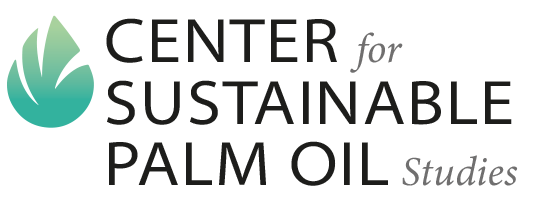
In August, Working Group I of the UN’s Intergovernmental Panel on Climate Change (IPCC) released a landmark report that assessed the major causes, findings and likely climate scenarios together with proposed measures to help fight climate change.
It provides a pessimistic forecast of the planet’s environmental well-being and warns of an uptick in extreme heatwaves, flooding, droughts, and overall global temperature. The UN Secretary-General António Guterres has called the findings of the report “a code red for humanity”.
In no uncertain terms, the report blames human influence as being the main driver behind the warming of our atmosphere, oceans, and land. It confirms what has long been suspected of deforestation and its profound contribution to climate change.
Between 2010 – 2019, land-use change and land management (e.g., deforestation, degradation, etc.) have contributed to 10% of all global CO2 emissions. It is listed alongside fossil fuel combustion and agriculture to be one of the main human causes of climate change. Together, these three sources stand responsible for the emission of the lethal greenhouse gases that continue to warm our planet.
With rigorous scientific data to support the arguments, scientists assert that the process of negative land-use, which has been in practice for several centuries now, has revealed its consequences. Losing our forests has resulted in significantly changing the so-called deforestation-pulse effect, where nutrients like nitrogen components now stand inhibited from production, having a domino effect on the ecosystem and biodiversity.
Deforestation, as is widely known, also takes away from the world its most effective and efficient means of removing carbon dioxide from the atmosphere. It comes as little surprise, therein, that IPCC’s report focuses on the Amazonian rainforest, the world’s largest tropical forest and previously also its largest carbon sink.
One that unfortunately hit a 12-year high deforestation surge in 2020 with some studied contending that rampant deforestation has led to the Amazon now releasing more carbon than it stores. Here’s why this is dangerous:
The Amazon holds nearly 150 to 200 billion tons of carbon. Roughly about 15 per cent of the total carbon target IPCC has suggested the world conserved if we wish to give ourselves a 50% chance of staying away from 2 °C of further warming.
The science is still contentious with one study suggesting that losing roughly 40% of the Amazon can trigger a 4°C rise in global temperatures and others contenting it could take even less. The world has already lost 20% of the Amazon and if IPCC’s report has made anything clear, it is that rampant deforestation and inevitable warming will only mean we inch ever so close to the point of no return.
By all accounts, this may be our final warning. But by virtue, all warnings are a reminder of the fact that there’s still time left for us to act. The same cautious dose of optimism is reflected in IPCC’s current report. It states these negative impacts to the environment are not irreversible, even as it edges on the precipice of becoming so, things can change but only and only if significant and urgent corrective measures are taken to minimize or end deforestation.
This is where Malaysia’s reversal of deforestation stands out.
Whereas deforestation increased around the world and in Brazil, trends in Malaysia told a different story – one of success. The government has enforced a nationally mandated and legally binding certification scheme, called the Malaysian Sustainable Palm Oil (MSPO) that currently applies to a staggering 90 per cent of all palm oil plantations in the country. It ensures that producers source palm oil in a manner that is both environmentally prudent and wildlife friendly.
A delicate balance of punitive measures, like sanctions and penalties to deter non-compliance, and rewards to farmers with zero deforestation, has greatly improved the health of tropical forests in Malaysia. Culminating in the rapid reversal of deforestation since 2017.
For a commodity that constitutes a significant part of our everyday products, measures like MSPO reflect a conscientious and effective step in the right direction. They offer the world a much needed, and tested model to curb deforestation. Something that countries like Brazil can significantly benefit from.
Climate change is already wreaking havoc around the world, with worse yet to come. As a result, decisions made this decade will be consequential in deciding the fate of our younger generation and whether they see a livable future or not.
It was a report by the IPCC that ultimately swung the world towards the signing of the Paris Climate Agreement. It is likely, and hoped, that IPCC’s recent report will have a similar effect on the incoming COP26 scheduled for Oct-Nov 2021 and in the shaping of a new climate agenda.
There’s a role leading nation – with substantial power, resource and frankly responsibility, can play here, in particular to address deforestation. A good first step maybe to recognize and commit to support measures that have successfully undone the problems of deforestation in the past. Followed by encouraging that these measures be incorporated in the renewed climate agenda.







